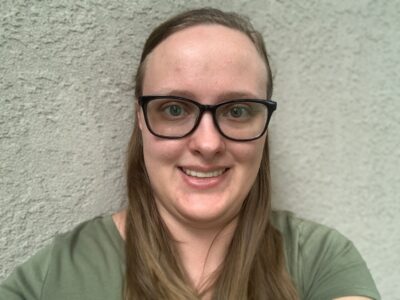My Diagnosis
Hollyn’s diagnosis of Postural Orthostatic Tachycardia Syndrome was a life-changing event – one that she says disabled her in some ways and humbled her in others. It also lit a fire within her to fight for people like her with “invisible illnesses.”

Story
I’ll never forget that day in the neurologist’s office when he told me he knew what I had. I turned to my mom, pointed my index finger right in her face, and said, “I TOLD you I wasn’t crazy!”, and she looked back at me with tears in her eyes and said, “I know.”
My life first changed forever in September 2009 when I got “sick.” Then it changed again on January 9, 2010, when that “sick” got a name: Postural Orthostatic Tachycardia Syndrome, aka POTS.
POTS turned my world upside down in an instant.
POTS turned my world upside down in an instant. Years worth of not being able to see straight. Years worth of dizziness and vertigo; my world tilts and spins all day, every single day. Years worth of muscle weakness, numbness, and my legs giving out from underneath me. Years of presyncope including, but not limited to, visually blacking out or getting washes of color over my vision. Fatigue, so different from being “tired” – I used to sleep over 18 hours a day and still wake up exhausted, and I slept through the majority of high school. And I can’t forget all the years of chronic dehydration, hypovolemia (low blood volume), blood-pressure problems, and sky-high heart rates. The list goes on and on.

I haven’t allowed myself to fully grieve my health. It’s painful to imagine the life I could be living today had I never gotten sick. I haven’t allowed myself to grieve the life I lost or the life I always pictured for myself. I’ll now never be able to live the way I’d originally imagined. I’ve grieved a little in the way of anger. But sadness is by far more difficult to allow myself to feel, much less express. I also worry that, if I allow myself to grieve, I’ll never be able to stop; I struggle with positivity as it is. The last thing I want is to get stuck in a victim mentality long term because of the grieving process.
Nonetheless, I try to live. I’ll whine and complain and post and text my friends when I feel like crap. But then I turn on my music and laugh, smile, dance, and even sometimes pretend to sing. It’s usually at my desk or in my bed, reclined. Though sometimes, on a good day, I’ll stand up in my room and dance or jump around to a good song.
I’ve had so many people tell me how surprised they are that I’m able to stay so generally positive, despite the cards I’ve been dealt. A lot of days, I’m surprised too.
Finding friends who can relate firsthand to what it’s like living with POTS has quite literally been life-saving.
I feel like a huge key to that though has been finding community. Finding friends who can relate firsthand to what it’s like living with POTS has quite literally been life-saving. Several years after my original diagnosis, I was fortunate enough to stumble upon a few Facebook groups for people with POTS and co-occurring conditions. One of them is specific to my area of the US, and through that group, I have met some of the kindest, genuine, caring people. Another key for me has been knowing that I’m doing the best I can with what I have. I’m doing everything the doctors are telling me to do. So if I’m still getting sicker or flaring despite that, at least I know I’m doing my part.

It’s now been many years since the diagnosis that truly changed me, that disabled me in some ways, and that humbled me in others. POTS didn’t win. It didn’t take away the fight in me. It didn’t kill my spirit or my love for life. POTS became an avenue for advocacy for me; it lit a fire within me to fight for people with ‘invisible illnesses’ like mine. POTS could easily have taken my life in a direction I didn’t want it to go – and, in some ways, it has. But there are plenty of other ways I haven’t let my diagnosis take as much from me as it could have. I still get to be an advocate. I graduated high school and am going to college. I write, have friends, and have a social life. Getting a service dog, though not part of my original plans, has been another positive.
So, no, POTS didn’t win. I did.
About the contributor
Hollyn Donovan is a social-work student living in North Texas. She loves animals, public speaking, and connecting with others. Her friends describe her as enthusiastic, passionate, resilient, and benevolent. Hollyn enjoys being an advocate and using her writing to help be a voice in the community.